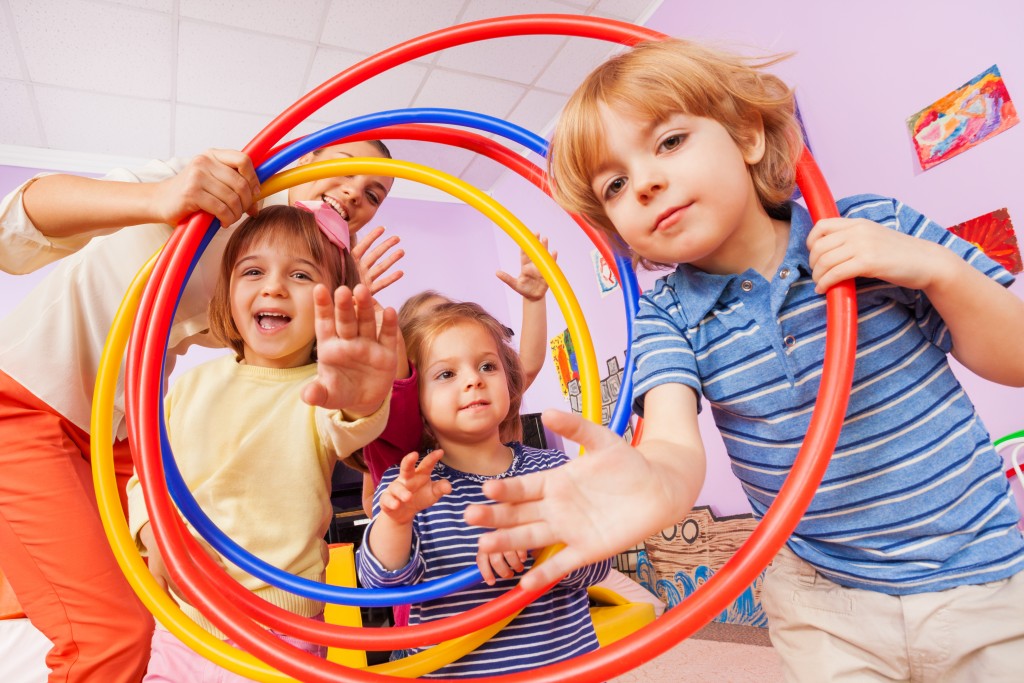- Playing with kids is essential for their development, as it helps to build physical, mental, and social skills and strengthens family bonds.
- Academic playtime activities promote cognitive growth in children by increasing knowledge and fostering creativity.
- Social bonding games allow children to practice collaboration and build relationships while gaining a sense of security from the parent-child relationship.
- Physical playtime activities such as running, biking, organized sports, dancing, and sensory play help kids stay fit while developing coordination and balance.
Playing with kids is one of the essential elements of childhood development. Engaging in playtime activities allows children to build their physical, mental, and social skills while developing strong family bonds. Research has demonstrated the importance of playtime for children’s overall well-being, showing that it can improve their physical health, enhance their cognitive abilities and help to develop a sense of belonging.
Studies have found that when children engage in playtime activities with their parents or other adults, they benefit from improved physical health outcomes such as better motor skills and agility, increased endurance, and strengthen posture. They also gain an appreciation for coordination and balance, which can help them quickly adapt to changing situations.
However, parents might want multiple options when playing with their kids. Here are a few ideas for you to consider.
Academic Playtime
Playing academic-focused activities with children can provide a wide range of cognitive and social benefits. Academically-based playtime activities can help kids learn essential skills like problem-solving, reasoning, and abstract thinking. Through academic playtime activities, kids can also develop better communication skills by learning to express their ideas clearly and concisely in discussions or debates. In addition, these playtime activities allow children to interact with each other, allowing them to practice their social cohesion and collaboration skills while building relationships.
Playtime also helps children learn fundamental mathematical concepts such as calculation, measurement, estimation, and probability. Activities such as playing board games or card games that involve counting or using dice are effective ways of developing an understanding of math concepts in a fun way. Puzzles and mazes can help improve reasoning skills while making connections between various pieces of information. Other activities like word games and memory games can help boost vocabulary knowledge, which is essential for reading comprehension and correct spelling.
In addition to fostering intellectual growth, academic-based activities promote creative thinking among young children. Exploration-based activities such as creating art projects or conducting science experiments encourage creative expression while teaching them how to look at the world from different perspectives. Furthermore, engaging in educational playtime helps instill intrinsic motivation – the desire to discover new things on one’s own instead of simply taking instruction from adults – a crucial aspect of personal growth and development.
Social Bonding

In addition to providing educational benefits, playtime can help build strong family bonds. Activities that involve parents and children working together to complete a task, such as doing a puzzle or constructing with Lego blocks, allow kids to express their ideas and work cooperatively in a supportive environment. This type of bonding helps kids feel secure and will enable them to establish trust in the parent-child relationship.
Playing also creates opportunities for meaningful conversations between parents and children, helping toddlers through teens to open up about their feelings in ways they may not have otherwise. Moreover, playtime activities let parents provide positive reinforcement while teaching children important life lessons such as patience, tolerance, empathy, respect for others, and resilience.
Physical Playtime

Physical play is integral to any child’s development, and engaging in active activities with kids can enhance their physical fitness while providing a good entertainment source. With so many types of physical activities, you are sure to find something fun for you and your children. Here are a few ideas:
Outdoor Activities
Outdoor activities, such as running and biking, provide an excellent way to enjoy physical activity with your children. Not only do these activities help kids stay fit, but they also give them a chance to explore the world around them.
Organized Sports
Participating in organized sports such as soccer or basketball allows parents and children to work together as a team while teaching essential skills like cooperation, discipline, and leadership. It also allows kids to develop their motor skills and build confidence levels.
Dancing
Incorporating dancing into playtime is another fun physical activity that can help improve coordination and balance. Dancing also provides entertainment for all ages – from toddlers to teens – so everyone can get involved!
Sensory Play Areas
Sensory play is a great way to engage children in physical activity and help them learn about their environment. Sensory play activities can include making and mixing homemade playdough, playing with water beads and sensory bags, or building sandcastles. Soft play activities for toddlers will benefit their motor skills and help them gain better body awareness.
Final Thoughts
Overall, playtime with kids is an integral part of their development process. With the plethora of activities available, parents can customize the type of playtime to suit their children’s interests and abilities best. Not only will this provide a fun bonding experience for the family, but it will also produce long-lasting positive effects on their children’s physical and mental health. So don’t forget to play with your kids – you won’t regret it!
